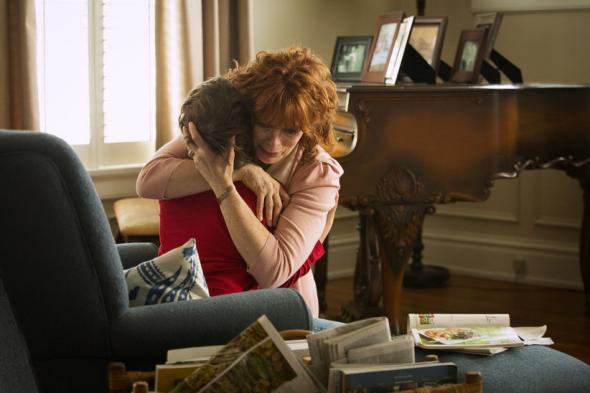In Resurrection, the new series from ABC, an 8-year-old boy, Jacob, drowns in a river and wakes up in rural China thirty-two years later. As Jacob’s parents grapple with the return of their son, the show plays out a scenario that many people have dreamed about across the years, including filmmakers, French television writers, Stephen King, and a Nobel-prize winning novelist. The idea that the dead could come back, or just stick around indefinitely, is an idea with more lives than the hardiest of cats.
Resurrection is based on The Returned, the popular debut novel by Jason Mott that had a global scope, with the dead returning everywhere and causing a great deal of existential angst. Mott told CNN his novel was inspired by a dream about his dead mother, and that after he read an early version of the story in public, “people came up afterward and said how it reminded them of people they had lost.”
It might also have reminded them of They Came Back, a 2004 French movie, released in France as Les Revenants and in the U.K. as The Returned, which tells the story of a small town forced to deal with a sudden influx of previously deceased residents.
Many people who have seen ads for the TV show based on Mott’s book are reminded of The Returned—not his novel, mind you, but the Sundance series that originally aired in France and is based on They Came Back. The Returned received much acclaim, including an International Emmy, and a second season is currently in production. An English language remake is also in the works, but, to reiterate, Resurrection isn’t it.
In sum, because this is confusing: Resurrection (ABC) is an adaptation of The Returned (a novel). The Returned (Sundance) is an adaptation of They Came Back (a French movie), and will soon be adapted as an English-language series that will either be called They Came Back or The Returned.
Of course, all of these productions also recall Yomigaeri, the 2002 Japanese film in which dead people are mysteriously resurrected in the city of Aso, and then investigated by a representative for the Japanese Ministry of Welfare as they attempt to reintegrate into society with their loved ones. And there’s also In the Flesh, a BBC 3 series set in the fictional village of Roarton, Lancashire, after thousands of people—including a teenage boy—have come back to life, triggered triggering a conflict called the Pale Wars. (A second season is currently in the works.)
Also in the works is Babylon Fields, a new NBC pilot that, according to the Hollywood Reporter, “centers on the dead rising again in Babylon, N.Y., where lives are regained, old wounds are reopened and families are restored–for better or worse.” Babylon Fields is based on a failed pilot produced for CBS in 2007. This was also called Babylon Fields, and it was subsequently released as a television movie and pretty much ignored by everybody.
I could go on—and will, but only briefly. There’s The 4400, a series in which 4400 missing persons suddenly return to the state of Washington, completely un-aged since their disappearance; Pet Sematary, the infamous novel by Stephen King, in which a man resurrects his dead son by stuffing his body in an Indian burial ground; and Death with Interruptions, a Portuguese novel by the Nobel-prize winning Jose Saramago, in which people simply stop dying completely and society must grapple with the implications of mass immortality.
Obviously, this is an idea that will not die (or maybe it dies but then comes back from the dead). Right now it seems to hold a particular appeal. Last year, contemplating several high-profile films which shared the theme of “facing a pitiless void,” A. O. Scott noted that “most movies, even the most ostentatiously naturalistic … are also fantasies, tapping into the unacknowledged longings and superstitions of the audience.” The pitiless void, Scott argued, was the hot ticket of 2013, as it reflected “persistent anxieties of 21st-century life in the developed world.”
Now, it seems, life after the void is the new hot ticket.
